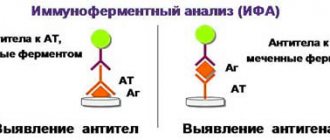Belching is the process of ridding the body of air accumulated in the stomach. Most often it gets there during meals. Mostly they try to hide belching because it is considered indecent. But in some countries it is even customary to burp after eating, such as in China. To respect a cook, you need to learn how to induce a burp on purpose. Let's see what methods will help with this.
Why cause burping?
While the majority of people are trying to get rid of belching or at least hide it, some people are trying to purposefully learn to burp. No matter how strange it may sound, this behavior has its own explanations:
- Traditions. As mentioned above, in some countries it is customary to burp after eating. For example, in India, China, Turkey and the Middle East, belching shows that you have eaten well and enjoyed your food. But this tradition is gradually becoming a thing of the past. More and more modern residents of these countries are abandoning such a controversial tradition and are striving for a European way of life. So, in unfamiliar company, you should not burp after eating - they may not appreciate it.
- Diseases. With some diseases, people are deprived of the ability to burp, and because of this they experience unpleasant and even painful sensations in the stomach. It is better to discuss ways to eliminate medical problems with a doctor who will prescribe special medications or exercises. There is no need to self-medicate with the help of “folk remedies” - this can aggravate the situation.
- Childish. Among children and teenagers up to a certain age, such “gags” are common. Any unusual abilities and skills allow you to stand out among your peers, attract attention and earn respect. One of these strange but respected skills is the ability to burp at will. Particularly respected are the guys who are also able to say something while burping.
Everyone has their own reasons for learning such a rare skill, but if there is a need, then it is worth satisfying it. Below you will find several working methods to help you learn to burp.
Is it dangerous to not burp?
The absence of belching is not scary if a person is healthy and eats right. However, in some diseases, rare regurgitation (or its absence) can become an alarming symptom of dysfunction of the gastrointestinal tract, the formation of ulcers, malignant tumors, etc. With such pathologies, belching is a common occurrence. Its absence is considered a negative factor.
If, after artificially inducing a belch, pain, nausea or regurgitation with blood appears, you should urgently consult a doctor. This indicates serious illness. However, most often, regurgitation in adults occurs infrequently and this is normal. Sometimes it is necessary to induce burping to relieve the condition in order to expel air and gases.
Food and drinks
The mechanism of belching is tied to food intake, so the easiest way to induce it is with the help of the right foods. They need to be selected according to certain properties - they must cause gas formation so that the belching is stronger.
If you are unable to burp due to your health, do not use these methods - they will only make your stomach bloating worse and you will not be able to burp.
Two apples are enough to cause gas in the stomach.
Carbonated drink
Such drinks contain a lot of carbon dioxide, which provokes artificial belching. Just take a couple of sips and you will immediately feel the desired effect.
To get a strong burp, you need to drink soda quickly, in large sips, trying to swallow air in the process. Or you can drink through a straw, pausing - in the process you will swallow an additional portion of air.
Fruits and vegetables
Many foods contain air, which forms gas when it enters the stomach. It is he who breaks out and provokes belching.
Similar products include:
- apples;
- pears;
- legumes;
- cabbage;
- cucumbers;
- fruit jelly.
To get the strongest possible burps, you should consume them raw.
Chewing gum and lollipops
Any brand and flavor will do, the main thing is the process of absorption of these products. While chewing gum or sucking hard candy, a person swallows a lot of excess air.
It enters the stomach, turns into gas, and rushes back. The time it takes for you to receive a response is individual and depends on your characteristics.
Eating
To make a big burp, your stomach must contain air, you need to force it to work as actively as possible. A good way to do this is to simply eat. A normal meal, as a rule, does not lead to any noticeable belching. To get air into your stomach, you must eat as quickly as possible. Drink as much lemonade, beer and other carbonated drinks as possible. Their consumption leads to the appearance of carbon dioxide in the stomach, which is necessary for belching. To make swallowing gas more efficient, drink drinks through a straw. Drinking a drink in one go is also a good way to get a lot of gas. The more varied foods you eat, the stronger the combination of gases that will form in your stomach. Your burping will be maximum after this. Experiment with different products.
Actions to induce burping
The body works in response to our actions and movements. Therefore, you can provoke him to burp by performing certain exercises.
Monitor your condition carefully so as not to overdo it. Especially if you have a full stomach, you can accidentally induce vomiting.
Sometimes it is enough to press on the stomach to release excess air.
Change position
After eating, you need to change your body position. Use any combination of poses:
- Lie on your stomach and roll from side to side, as if mixing the contents of your stomach.
- Jump and squat or stand up and sit down, as if shaking a soda inside yourself.
- Lie on your back and massage your stomach with your hands.
Use one or more exercises to shake up your insides.
Vomiting reflex
You need to be very careful with this method - you can induce vomiting. And the option is not the most pleasant in itself, so use it only as a last resort.
Place your fingertip on your upper palate and apply gentle pressure. Reflexively, the stomach and diaphragm will contract, which will release some of the gas and cause a belch.
Take antacids
Antacids are drugs that regulate acidity in the stomach. Their use can provoke artificial belching. Only a doctor can tell you how to take them correctly and in what quantity, depending on your condition.
It should be used only as a last resort, as frequent use can cause side effects.
How to help your baby release air after breastfeeding
A famous picture: a mother holds a baby in her arms after feeding and waits for him to burp. But what is behind this? Why do babies burp, should babies really burp after eating, and what should you do if something doesn’t go according to plan? An instruction with practical advice from our expert on the problems of the little ones, neonatologist Valeria Maksimovna Shchelkunova, will help you find out.
— Valeria Maksimovna, why do newborns spit up after feeding?
- Regurgitation is the reverse flow of eaten food from the stomach into the oral cavity. Such spontaneous emptying of the stomach through the mouth in children of the first year of life can be caused by various reasons.
The most common causes of regurgitation
- too active sucking
- swallowing excess air
- overfeeding
- inadequate choice of infant formula
- feeding disorder
- early transition to complementary feeding
- vigorous exercise immediately after feeding
- allergic reactions
- autonomic dysfunction syndrome
- hereditary metabolic disorders
Causes of vomiting due to pathology
- congenital malformations of the gastrointestinal tract
- injuries to the cervical spine during childbirth
- inflammation of the gastric mucosa
Regurgitation is often attributed to the anatomical and physiological characteristics of infants. They are considered functional disorders when the clinical picture does not include pathologies of the gastrointestinal tract. Regurgitation may be a consequence of changes in bowel function. But they all have a temporary non-pathological nature - this is the most important thing.
— Until what age do babies burp?
— The frequency of regurgitation due to anatomical and physiological characteristics (no pathology) usually decreases by three months of age, and with the introduction of complementary foods they practically disappear. Regurgitation up to a year can be considered normal. With pathologies and defects, it is difficult to say when regurgitation goes away and whether it goes away at all.
— How does the passage of air differ from regurgitation of milk? What is more dangerous for a child?
— When the air is released, a characteristic belching sound is heard and a little milk may flow out. Regurgitation is accompanied by a characteristic gagging sound, and milk is released abundantly.
Almost everyone loses air (swallowing air occurs when sucking on a breast or bottle), but regurgitation of milk is a sign of a problem and a reason to look for the cause of what is happening. Regurgitation of milk is dangerous, unlike the passage of air, and can cause aspiration pneumonia when milk flows into the respiratory tract.
— Which regurgitations can be considered normal, and which ones indicate problems with the child’s gastrointestinal tract?
- Belching air and spitting out milk - up to 3-5 ml within twenty minutes after each feeding - are considered normal. Regurgitation at a later date and with a larger proportion of milk is a reason to think about it. However, a single such case does not necessarily indicate problems with the gastrointestinal tract: it may be the result of a feeding disorder, excess food, or the result of improper manipulation of the mother with the child.
In case of pathology, a clear pattern and regularity should be observed - if regurgitation of a large volume of milk occurs systematically and/or after a long period of time after feeding, you need to consult a doctor.
— Valeria Maksimovna, how do you understand that a baby cannot burp on its own?
— Not all babies necessarily burp after feeding. If regurgitation does not occur, most likely the baby does not need it.
— How to help a newborn baby burp? What burping positions are there—or what steps should a mom take to help her burp up air after a feeding?
- Carrying in a column is the most effective and efficient way to help burp after eating. After feeding the baby with formula or breast milk, the mother should hold him upright to prevent reflux and help food move further from the stomach. This reduces the likelihood of gastroduodenitis and aspiration pneumonia.
The baby should be carried in an upright position for at least half an hour. Gently pat your baby between the shoulder blades or gently stroke the baby's back to create a very gentle vibration. Until the age of three months, it is recommended to do this not only during the day, but also at night. But there should be a slight vibration, not tapping.
Mistakes that parents make when trying to help their baby burp:
- applying a hot diaper: this will not help, it is better to use it for colic to relieve gas;
- placing the baby on the stomach or massaging the tummy is ineffective and can only make the situation worse. In order not to induce vomiting, after feeding you should remain calm for 30-40 minutes, avoiding massage, baths and other active exercises;
- inhibition of the child due to unwillingness to wait for a long time. Some babies burp or spit up within a couple of minutes after feeding, while others need about 20-30 minutes. Often, impatient parents cannot stand this time - they will hold the baby a little (“put a tick”) and put the child down, who will burp after some time;
- In principle, you cannot shake the child or pat him strongly on the back - only light vibration is permissible.
— Valeria Maksimovna, what are the consequences of situations when the baby cannot burp for a long time?
- If the baby does not burp air, there may be bloating. In addition, if after feeding you do not provide the child with proper fixation in the position in a column and put him down immediately, the air will still escape, but after a longer amount of time, and the milk that is released with it, even in small quantities, can enter the lungs, which is dangerous for the child. baby. Therefore, it is important to monitor the regurgitation process.
— Does the position in which a mother breastfeeds her baby affect the nature of regurgitation?
— Problems with active regurgitation usually do not arise if the position is comfortable for mother and baby. It is important how the baby attaches to the breast - he must actively suck the nipple and areola and at the same time capture a minimal amount of air.
— Is it necessary to let your child burp before bedtime?
— Excess air will escape sooner or later. When a baby sleeps on its side or in a special cocoon, this is not critical, only the diapers get dirty. But when lying on your back, there is a danger of milk entering the respiratory tract. Therefore, after feeding the baby, you need to hold it up, especially since this only needs to be done until the age of three months.
— What techniques can be considered a good prevention of frequent regurgitation?
— When breastfeeding, it is important to ensure that the baby is correctly attached to the breast; when bottle-fed, you need to select a bottle and pacifier according to age and monitor how the baby sucks. The nipple is completely filled with the mixture so that the baby does not swallow air. It is necessary to adequately select milk formulas, avoid overfeeding, active exercises and massage after feeding. A thickener for human breast milk and anti-reflux formulas are prescribed exclusively by a doctor for excessive regurgitation and for prevention.
Regurgitation is often an anatomical and physiological feature of children under one year old. In order to understand whether they are normal or pathological, it is worth assessing the time of regurgitation after feeding and the volume of milk released. The norm is considered to be regurgitation within 20 minutes after feeding with a volume of no more than 3-5 ml. To facilitate the process of removing excess air after feeding the baby, you should hold the baby in a column for at least twenty to thirty minutes. During the process, you can create a slight vibration by patting or stroking the back. To prevent regurgitation, it is recommended to control the amount of air swallowed during feeding, ensure that the breastfeeding is correct, and when feeding from a bottle, always fill the nipple with milk.
Pediatrician Valeria Maksimovna Shchelkunova
*The ideal food for an infant is mother's milk. WHO recommends exclusive breastfeeding for the first 6 months. MAMAKO® supports this recommendation. Before introducing new foods into your baby’s diet, consult a specialist.
How to secretly induce burping
Many of the methods described above are not suitable for public places or everyday situations. If you don't want to look stupid in front of others, you'll have to learn how to burp using a certain type of breathing.
Swallow air
A big plus is that burping does not depend on food intake, and you can burp at any convenient time.
- Take a normal breath as usual.
- Close your mouth and nose - don't breathe.
- Exhale some air into your mouth, but do not let it out.
- Swallow it along with your saliva as you normally would when eating or drinking water.
- Continue releasing air from your lungs into your mouth and swallowing it with saliva.
- When you feel that your stomach is full of air and the belching is ready, you can stop.
It is very important not to swallow air from outside during the process; use only what is in your lungs.
Air from the lungs
Find a comfortable position so you can relax and breathe easily. Try not to be distracted by anything, at least while studying. Once you master the skill, you can use it in everyday situations, but first you need to maintain privacy and peace.
- Take a deep breath to fill your lungs with air, but not completely - there should be some space left.
- Part your lips as if in a smile and relax your throat. Press your tongue against your upper palate and hold it there throughout your inhalation. Draw in air through the small gap between your lips.
- Exhale slowly and feel the air passing through your throat.
- Close your throat. To do this, you need to close the back wall of the palate.
- Exhale slowly with your throat closed. You will feel pressure on your digestive organs, causing excess gas to come out.
Learn to determine the moment when a burp is ready, and open your throat at that moment.
Reasons for the absence of belching
The reasons why there is no belching are not always negative. The absence of regurgitation largely depends on physiology and food. For example, if a person is healthy and does not consume foods and drinks that cause increased gas formation, does not talk while eating and chews food thoroughly, then regurgitation occurs extremely rarely.
However, sometimes the absence of regurgitation brings negative sensations in the form of bloating, pain, nausea and other symptoms. In this case, they indicate a disease. The reason why belching does not go away may be a temporary spasm or a number of more serious pathologies:
- cancerous tumors that compress the lumens of organs, preventing the exit of excess gases and air;
- pancreatitis;
- gastrointestinal diseases.
Also, belching does not go away due to the stoppage of the stomach (atony). This can be caused by many factors - stress, bad habits (drinking and smoking), infections, poor diet, etc.
State of gas and air swelling
According to the National Institute of Diabetes and Digestive and Kidney Diseases (NIDDK), most people pass gas up to 21 times a day.
However, there are some health problems that cause people to experience gas and bloating more often. These people would benefit from inducing burping.
lactose intolerance
Lactose intolerance is the inability to break down lactose, a type of sugar commonly found in milk and other dairy products. People with this condition may experience gas or bloating and have difficulty burping at times.
Avoiding dairy products can help minimize symptoms, and burping can help with feelings of bloating, gas, and an inability to burp.
Upper gastrointestinal disorders
Many diseases of the upper gastrointestinal tract can cause frequent burping or inability to burp. These include stomach ulcers, acid reflux or gastroparesis. These conditions may benefit from some burping-stimulating techniques.
Stomach ulcers are ulcers that can develop in the esophagus, stomach, or small intestine.
Acid reflux is a condition in which stomach acid irritates the lining of the food pipe. Symptoms include gas and bloating after eating, which gets worse when lying down.
Gastroparesis affects the gastrointestinal muscles and makes it difficult to empty the stomach. It also affects digestion and causes bloating and a feeling of fullness even when a person eats little food.
Belching reflex dysfunction
Belch reflex dysfunction is rare, and most of the medical literature on it is not current.
An article in the medical journal Gastroenterology reported on a 25-year-old woman who complained of breast wasting as a result of upper esophageal sphincter (EES) dysfunction. She had a history of chest pain, including chest buzzing and an inability to burp during painful episodes.
Studies of RAO UES abnormalities and dysfunction do not specifically mention the inability to burp as a symptom, so the prevalence of this condition is difficult to determine. However, it is possible that firing the sphincter muscle may cause belching.
dyspepsia
Dyspepsia is not a specific medical condition. The medical term rather describes a burning or buzzing sensation in the chest or upper abdomen, usually after eating.
Most people describe the feeling as “gas,” and other symptoms may include stomach rumbling, burping or inability to burp, and increased gas in the stomach or intestines. The causes of dyspepsia can be minor or severe.
Body position
To prevent gas from leaving your stomach, try to stay upright (standing or sitting) at all times. So all the gas collected in the stomach will be in its upper part. To increase gas production, move more, try walking or jumping in place. If you have previously consumed carbonated drinks, the same process will occur in your stomach as when you shake a bottle of lemonade. Be careful, as too much movement with a full stomach can lead to nausea.
Belching is a natural physiological process that every person has. This means that the organs are functioning normally. If there is no belching, this may indicate gastritis, ulcers, pancreatitis, oncology and other serious and sometimes fatal diseases.
Read also: Sample of filling out a vehicle charter agreement
Diagnostics
The causes and treatment of constant belching of air or stomach contents are directly related: without eliminating the underlying disease or condition that provoked this symptom, it is impossible to achieve sustainable results of therapy. Therefore, the key step is a comprehensive examination, the purpose of which is to determine the source of the problem.
For this, the following research methods are used:
- X-ray of the stomach and esophagus with contrast;
- FGDS with sampling of gastric juice and biopsy;
- Ultrasound of the abdominal cavity and liver with functional tests of the gallbladder;
- blood, urine and stool tests.
Tea party
Although gas is irritating, it is a natural part of the body's digestive system. However, if problems with gas or belching are painful or chronic, these problems should be brought to the attention of a doctor, especially in people who have previously had surgery related to the stomach or gastrointestinal tract.
We've selected related products based on product quality and listed the pros and cons of each to help you determine which ones will work best for you. We have partnerships with some of the companies who sell these products, which means Healthline UK and our partners may receive a share of the revenue if you make a purchase through the link(s) above.
Methods for treating regular belching
The method of treatment or complex therapy is determined by medical history, examination results and an assessment of the patient’s general health. Treatment options may include:
- drug treatment (drugs are prescribed that suppress the activity of Helicobacter, normalize the motor and secretory function of the digestive organs, replenish the deficiency of pancreatic enzymes, etc.);
- diet therapy (providing a rest regime for the digestive organs with the help of a specially formulated diet that is gentle on them);
- surgical treatment (necessary when identifying anatomical anomalies and structural lesions of the gastrointestinal tract).
What diseases cause belching?
The causes of constant belching of air after eating or expulsion of stomach contents can be divided into several categories:
- Physiological (the entry of a large amount of air into the stomach along with food, an increase in intra-abdominal pressure during sports or physical work immediately after eating, during pregnancy, when consuming certain foods that emit large amounts of gases).
- Pathological. The list of causes in this category includes diseases of the digestive system, nervous system, and in some cases, heart disease.










